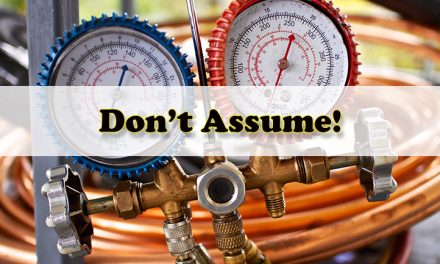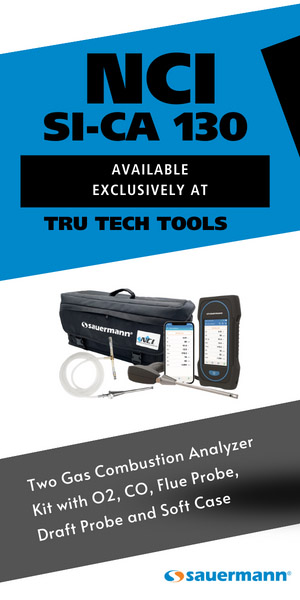In contrast, a standard heat pump would require a larger whole-home generator or an extensive solar and battery setup to function during power outages.
With a plan for the small amount of backup power required, dual-fuel systems ensure that homeowners remain warm and comfortable even when the power grid fails.
Get Creative
Thinking Beyond the Box: As with any HVAC system, a dual-fuel heat pump is only as good as the actual installation and the system it is installed in. But there are some special circumstances to consider for dual fuel specifically.
Special attention needs to be given to duct sizing because heat pumps typically require more airflow per Btu than furnaces. Existing ducts may be a limiting factor on the heat pump capacity selected.
Dual fuel allows you the option to put in a smaller heat pump than what is required to heat the home on the coldest days, potentially avoiding the need to up-size ducts. Of course, a duct renovation is always an option and can add valuable high margin work to the scope.
With increased complexity compared to furnaces alone or furnace and air conditioning systems, twice yearly maintenance is critical to keeping a dual-fuel system operating reliably for years to come. With the increased maintenance required, dual-fuel systems are prime candidates for maintenance contracts, a valuable source for recurring revenue for contractors.
The Future of Dual-Fuel Heat Pumps
As the demand for sustainable and energy-efficient heating and cooling solutions continues to grow, dual-fuel heat pumps are positioned to play a significant role in the HVAC industry.
These systems offer contractors the opportunity to provide versatile solutions that address concerns related to cold weather performance, utility bills, and power outages.
Moreover, as the energy landscape evolves, dual-fuel systems provide the flexibility needed to adapt to changing energy prices and requirements.
A Winning Proposition for Contractors
In conclusion, dual-fuel heat pumps are not just a solution to address customer concerns but also a strategic opportunity for HVAC contractors. By offering versatile and efficient systems, contractors can differentiate their business and tap into a growing market for eco-friendly heating and cooling solutions.
In a world where energy efficiency and environmental responsibility are paramount, dual-fuel heat pumps stand out as a reliable and adaptable solution. By guiding your customers to choose the right dual-fuel system for their specific needs, you position yourself as a forward-thinking contractor who can provide effective solutions that align with both customer demands and the industry’s ever-changing landscape.
Ben Lipscomb, P.E. has more than 16 years of experience in the HVAC industry, including laboratory and field research, Design/Build contracting, and utility energy efficiency program design. He is National Comfort Institute’s director of engineering and utility programs and may be contacted at ncilink.com/ContactMe.













Recent Comments